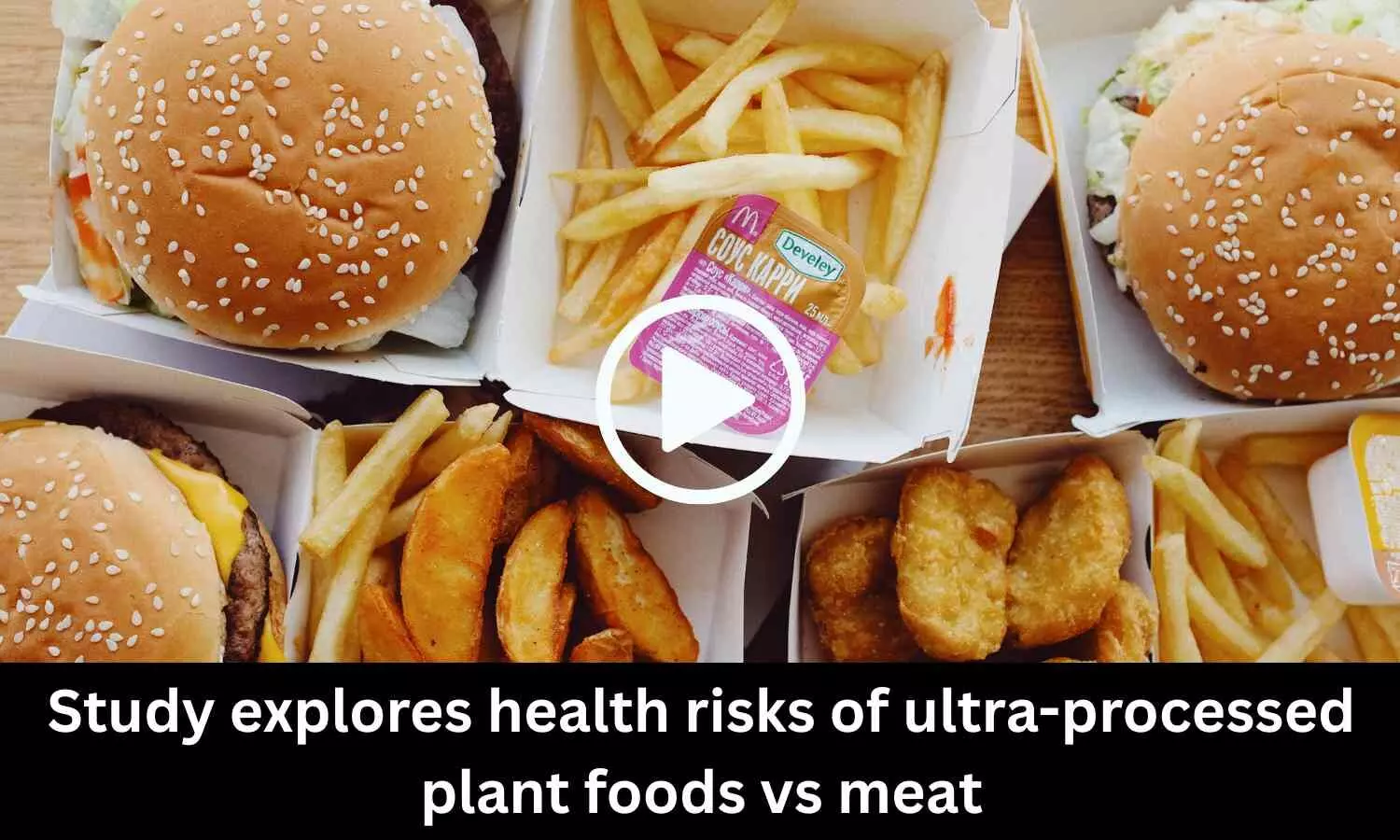Study explores health risks of ultra-processed plant foods vs meat
- byDoctor News Daily Team
- 28 October, 2025
- 0 Comments
- 0 Mins

An in-depth narrative review inCurrent Nutrition Reportsaddresses the major debate around unprocessed animal foods and ultra-processed plant-based foods, exploring their impacts oncardiometabolic health,chronic disease, and mortality. The NOVA classification system, central to this review, sorts foods into unprocessed, culinary ingredient, processed, and ultra-processed categories, with UPFs-including both animal- and plant-based products-making up a significant portion of modern diets. Ultra-processed plant foods like plant milks, meat analogs, and margarine are designed to provide sustainable and health-focused options, but their overall nutritional value is debated. Plant-based UPFs are generally lower in saturated fat, cholesterol, and heme iron, and free of bioavailable estrogens, unlike most animal-based foods. They often contain added fiber, plant protein isolates, and healthy polyunsaturated fats (PUFAs) but may also include additives and sugars. The review drew on randomized trials, cohort data, and dietary composition analysis. Substituting animal with plant-based UPFs—such as soymilk for dairy, Beyond Meat for red meat, or soft margarine for butter-yielded reductions in LDL cholesterol, C-reactive protein, total cholesterol, body weight, and TMAO, a compound linked toheart disease. Plant-based alternatives, especially when minimally processed, boosted fiber intake and anti-inflammatory short-chain fatty acid (SCFA) production, countering some risks associated with animal products like elevated cholesterol and inflammation. The evidence highlighted product-specific nuances: while replacing some animal foods with certain plant-based UPFs brings cardiometabolic benefits, these foods are not as healthful as whole plant foods. Soft margarine, made with non-hydrogenated oils, notably lowered cardiovascular risk compared to butter. The review advocates for a pragmatic approach-using plant-based UPFs as transition tools in diets, with public health guidance tuned to nuanced product attributes and calling for further research on health effects by UPF subtype and context. Reference:Fernández-Fígares Jiménez MDCF & López-Moreno M. (2025). Ultra-processed Plant Foods: Are They Worse than their Unprocessed Animal-Based Counterparts? Current Nutrition Reports, 14:115. doi: 10.1007/s13668-025-00704-6, https://link.springer.com/article/10.1007/s13668-025-00704-6
Disclaimer: This website is designed for healthcare professionals and serves solely for informational purposes.
The content provided should not be interpreted as medical advice, diagnosis, treatment recommendations, prescriptions, or endorsements of specific medical practices. It is not a replacement for professional medical consultation or the expertise of a licensed healthcare provider.
Given the ever-evolving nature of medical science, we strive to keep our information accurate and up to date. However, we do not guarantee the completeness or accuracy of the content.
If you come across any inconsistencies, please reach out to us at
admin@doctornewsdaily.com.
We do not support or endorse medical opinions, treatments, or recommendations that contradict the advice of qualified healthcare professionals.
By using this website, you agree to our
Terms of Use,
Privacy Policy, and
Advertisement Policy.
For further details, please review our
Full Disclaimer.
Recent News
Weight-loss drugs like Ozempic may help reduce dru...
- 28 October, 2025
ADALA Trial: DOACs Match DAPT in Thrombosis Preven...
- 28 October, 2025
Study reveals fat-fueled neurons may unlock new br...
- 28 October, 2025
Closed-Loop Insulin System Improves Glucose Contro...
- 28 October, 2025
Daily Newsletter
Get all the top stories from Blogs to keep track.


0 Comments
Post a comment
No comments yet. Be the first to comment!